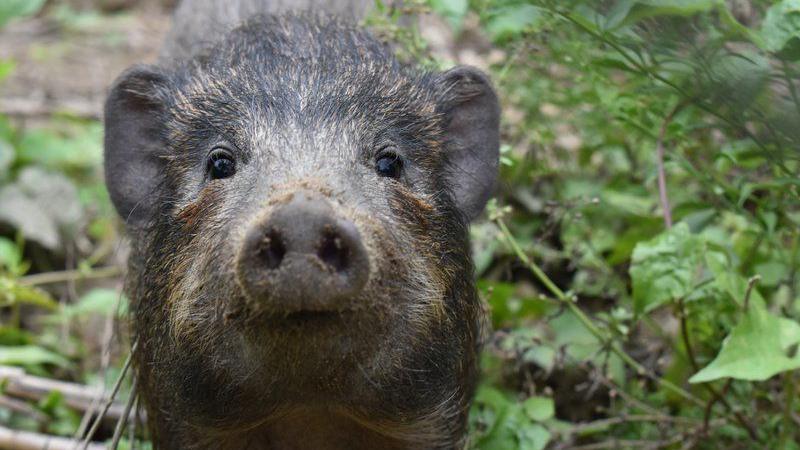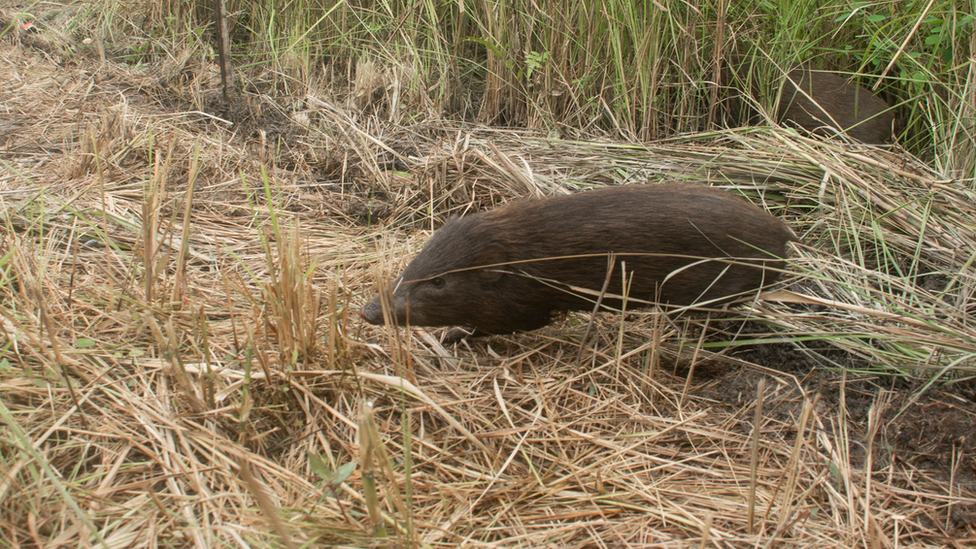Jersey trust helps release pygmy hogs in India

Durrell Wildlife Conservation Trust said six of the pygmy hogs released in India this year have been fitted with radio trackers
- Published
Durrell Wildlife Conservation Trust said its team in India has released nine more endangered pygmy hogs into the wild.
Since 2020, the Jersey trust said it was the fifth successful release and took the total number of hogs released in Manas National Park in Assam to 63.
The project is part of the Pygmy Hog Conservation Programme (PHCP) which said the species was one of the "most endangered mammals in the world".
PHCP Project Director at Durrell Dr. Parag Jyoti Deka said: "Pygmy hog and grassland conservation not only protects other unique and important species, but it also indirectly benefits the communities living around the park.”
'Critical data'
“This project also allows us to address the larger question about the conservation and management of one of India's most biodiversity-rich habitats."
The trust said the pygmy hog (Porcula salvania) was the world’s smallest and rarest wild pig.
It said this year six of the released hogs were also fitted with radio trackers, which provides "critical data" about the hog's behaviour and habitat use.
"A camera trap study from last year’s release site in Manas shows that hogs released in 2023 are exploring and now breeding in the area, and a pregnant female hog was captured on camera in the wild for the first time," said the Durrell Wildlife Conservation Trust.
Principal chief conservator of forest and head of the forest force in Assam Shri R.P. Singh said he was present for the release and called the project as "commendable".
“I wish the population of the pygmy hog stabilises in this landscape, making Manas more vibrant in its species richness," he said.
Follow BBC Jersey on X (formerly Twitter), external and Facebook, external. Send your story ideas to channel.islands@bbc.co.uk, external.
Related topics
- Published14 October 2023
